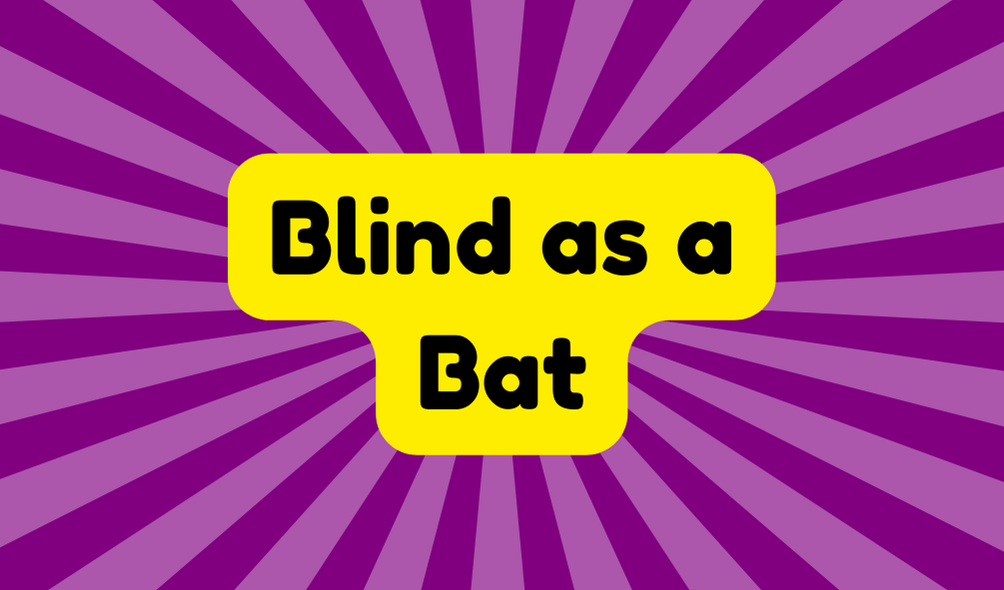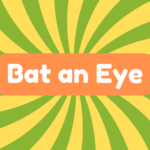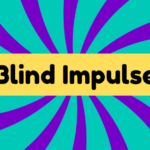The phrase "blind as a bat" describes a person's inability to perceive clear truths or realities, often reflecting denial or ignorance. This expression originates from outdated beliefs about bats being completely blind. It highlights how misconceptions can evolve into common phrases that describe social awareness. For example, someone might be "blind as a bat" to their friend's feelings or their own behaviors. Such insights reveal significant truths that are often overlooked, encouraging deeper understanding of human interactions.
Synonyms
When discussing the phrase "blind as a bat," one must recognize various synonyms that convey a similar sense of ignorance or denial. These terms reflect both visual impairment and cognitive dissonance, underscoring a lack of awareness in different scenarios. They also highlight the tendency to overlook critical issues. Notable synonyms include:
- Unseeing: Suggesting a failure to observe what is evident.
- Oblivious: Denoting a complete unawareness of surroundings or truths.
- Innocent: Indicative of a naive perspective, often ignoring harsh realities.
Through these expressions, the depth of denial and the complexities of perception become distinctly clear.
Example of Sentences
Examples of sentences that incorporate the phrase "blind as a bat" illustrate its usage in various contexts, often highlighting the shortcomings of individuals in recognizing obvious truths. Consider the following:
- Maria is blind as a bat about Mark's constant criticism, reflecting her examples of denial.
- Jenny's husband is blind as a bat to her infidelity, showcasing metaphorical blindness.
- Ross is blind as a bat regarding his coworker's unsettling behavior, failing to see its impact.
These sentences emphasize the disconnect between perception and reality, where individuals metaphorically navigate an emotional landscape, neglecting the glaring issues surrounding them.
Origin
The idiom "blind as a bat" has a curious origin rooted in longstanding misconceptions about bats themselves. Historically, bats were thought to be completely blind, leading to their use in idiomatic expressions related to poor vision. This myth promoted a simplistic view, neglecting the fact that bats expertly navigate using echolocation. Such historical misconceptions highlight the danger of forming beliefs based on limited understanding. As the idiom evolved, it began to signify an inability to perceive clear truths or issues in life, moving beyond its literal interpretation and illustrating how language can transform misconceptions into common phrases.
Collocations
Collocations related to the phrase "blind as a bat" reveal intriguing patterns in how language describes unawareness and denial. These combinations often connect vision impairment with a distinct lack of social awareness, highlighting how language mirrors societal attitudes. Common collocations include:
- "Blind as a bat to the truth"
- "Blind as a bat about emotional cues"
- "Blind as a bat to consequences"
Such phrases underscore a critical view of those who remain oblivious to pivotal issues, demonstrating how language can reinforce stereotypes of ignorance while urging greater self-awareness in both personal and social contexts.
How to Use in Everyday Language
In everyday language, the phrase "blind as a bat" can serve as a critical tool for highlighting someone's refusal to acknowledge important truths or realities around them. It effectively points out moments in everyday conversations when individuals seem oblivious to negative behaviors, either in themselves or others. For instance, using the phrase could help someone recognize behaviors like denial or ignorance in relationships. By identifying such blindness, individuals may be encouraged to confront difficult truths, fostering growth and understanding. Ultimately, "blind as a bat" acts as a gentle nudge toward greater awareness in both personal and social contexts.
Why Is It Still Relevant Today?
Acknowledging the ongoing relevance of the phrase "blind as a bat" reveals a fascinating aspect of human behavior. In contemporary society, individuals often succumb to cognitive biases that cloud their judgment, inhibiting awareness of personal and social dynamics. Whether in relationships or professional environments, people frequently overlook their own shortcomings or negative behaviors, akin to being blind to their surroundings. This idiom serves as a critical reminder of the importance of self-awareness and scrutiny in maneuvering complex social landscapes. By understanding this phrase's significance, individuals can better confront their own blindness and foster healthier connections in an increasingly intricate world.







